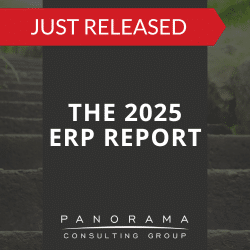As if successfully implementing an ERP System was difficult enough, doing so in a regulated environment is even more challenging.
As an outgrowth of its current good manufacturing practice (CGMP) initiative for human and animal drugs and biologics (any virus, therapeutic serum, toxin, antitoxin, or analogous product applicable to the prevention, treatment or cure of diseases or injuries of man)the Food and Drug Administration has issued guidance on how electronic records and electronics signatures must be managed within systems. This guidance is affectionately known as 21 CFR Part 11. CFR is the Code of Federal Regulations.
21 CFR Part 11 covers the following controls and requirements:
- Limiting system access to authorized individuals
- Use of operational system checks
- Use of authority checks
- Use of device checks
- Determination that persons who develop, maintain, or use electronic systems have the education, training, and experience to perform their assigned tasks
- Establishment of and adherence to written policies that hold individuals accountable for actions initiated under their electronic signatures
- Appropriate controls over systems documentation
- Controls for open systems corresponding to controls for closed systems
- Requirements related to electronics signatures
The FDA strictly enforces its “guidance” on compliance of 21 CFR Part 11. Many biotech and pharmaceutical companies have been fined and in some cases had operations ceased for not following this “guidance”.
So what does this mean for ERP implementations? It means that ERP systems used for these purposes must be “validated”. Validation involves proving and documenting the system complies with the above controls and requirements not only during implementation but for the life and death of the ERP system. The implications on time and budget are staggering. Validation and documentation activities can add 50% to both.
We understand FDA validation requirements. We can help select the right ERP System for your company using our Perfect Fit selection methodology and take the risks out of implementation with our Perfect Path implementation methodology.
Good luck with your ERP Implementation!












